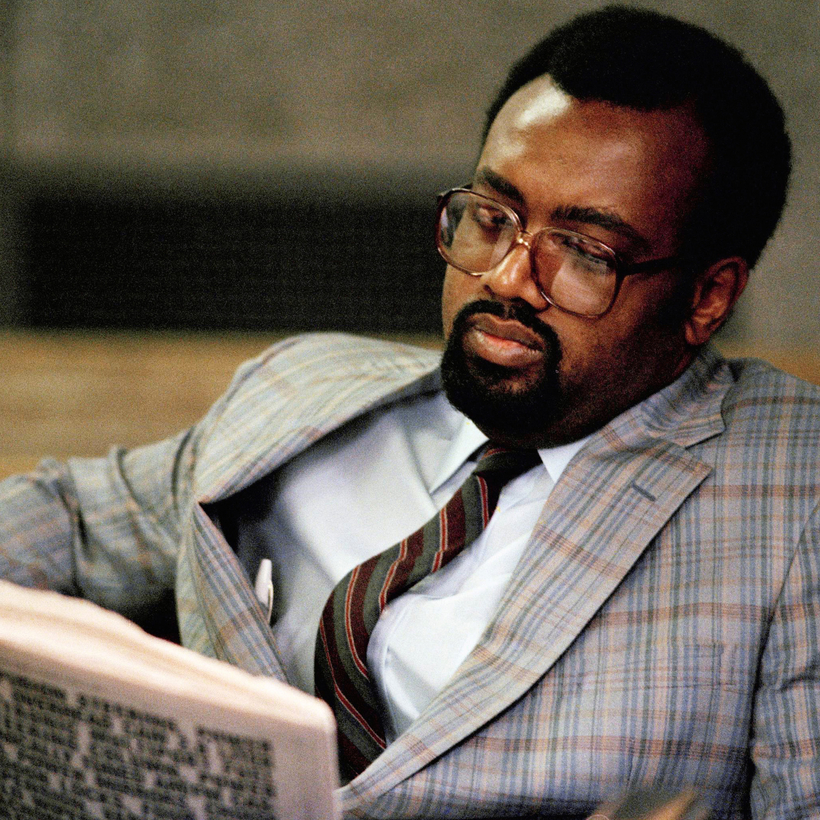As has been evident for at least the past two decades, America is a radically polarized country, more so today than at any time since the Vietnam War. Democrats demonize Republicans as coldhearted zealots while Republicans demonize Democrats as hopelessly woke and out of touch. If you watch Rachel Maddow, you get one quintessentially smug view of the world; if you tune in to Megyn Kelly, you get a completely different but equally strident perspective. Things have fallen apart, and the center has decidedly stopped holding.
All the same, a few independent voices have managed to make themselves heard above the cacophony. One of the most consistently interesting and provocative is that of Glenn Loury, a singularly gifted Black economist—the first such to receive tenure at Harvard, at 33—as well as a prolific writer and podcaster.
Loury is simultaneously “a critic of mass incarceration” and a skeptic of the overarching—and, in his view, reductive—explanations espoused by the promoters of the “New Jim Crow” narrative. His opinion of Barack Obama is similarly complicated. While Loury doesn’t “disagree with everything [Obama] did and stood for,” he indicts him for being “more concerned with tailoring his image than anything else.”
Loury’s new memoir, Late Admissions: Confessions of a Black Conservative, is a daringly unguarded account of his tempestuous life and gradual self-reckoning. Few public intellectuals, of which Loury is one, are prepared to lay out for readers the less than admirable sides of themselves and the ways in which their lives were sideswiped by conflicts, compulsions, and a sense of being above the social norms that apply to other people. “I can no longer take refuge in my secrets,” he writes. “There is no place for me to hide, not even from myself.”
Loury, who is now 75, has ingeniously constructed his memoir as a twice-told tale. In the “cover story,” sheer brilliance and ambition pulled Loury up from the South Side of Chicago of the 1950s and 1960s, enabling him to resist the lure of the street beyond the “nascent bourgeois respectability” of the neighborhood he grew up in.
The “real story” tells of the guileful “Player” persona he adopts from boyhood on, in part to hide his native insecurity and in part to gratify his “craving” to belong: “I longed for my father’s approval. I would sit at my uncles’ feet and dream about the day I could match their feats of sexual conquest.” Whether answering a question about a church sermon from the devout aunt he lives with or giving a hastily prepared talk in front of an audience of eminent academics at Harvard or M.I.T., Loury repeatedly pulls rabbits out of his hat.
“I can no longer take refuge in my secrets,” Loury writes. “There is no place for me to hide, not even from myself.”
Loury’s mother, Gloria, is a dreamy, lost beauty who drifts from man to man and whose second child, Leanett, is not her husband’s daughter. His father, Everett, is an austere and humorless man with degrees in accounting and law and a “talent for discipline” whose sock drawers are neatly organized and whose tolerance for missteps in behavior is close to none. Loury is dark-skinned, while his good friend Woody, whom he eventually betrays in small and bigger ways, “looks for all the world like your typical white boy.” The mostly unspoken prejudice against darker-skinned Blacks, both within and without the Black community, and the matter of authentic “blackness” recur throughout the book.
Loury’s precocity showed itself early on, and he is justifiably proud of it, although his self-assured tone can sometimes be off-putting. “Classes are a breeze,” he writes. “Even material that makes my brighter classmates wince, like learning Latin declensions, comes easily to me.” He responds to solid geometry as though it were poetry, intuitively and passionately; in the book, he uses quadratic equations to illustrate the “order beneath the surface of things.” Loury also develops a taste for girls and gambling, and pursues both with a reckless avidity.
Eventually, the two stories collide. “My intellectual life was becoming increasingly disjointed,” he writes, “bifurcated and riven by the divide between the pristine incisiveness of my economic models and the subtle ambiguities of narrative and imagination that characterize the humanistic exploration of the black experience.”
In the 1970s, despite his early interest in the Nation of Islam, Malcolm X, and Marxist thought, Loury befriends Stephan and Abigail Thernstrom, a historian and a political scientist, respectively, and finds himself aligning with their neoconservative view of the world. He starts contributing to Commentary and The New Republic and gives a talk at Hillsdale College titled “Responsibility and Race,” in which he audaciously argues that “African Americans need to stop blaming the troubles in their communities on racism and start taking responsibility for their own lives rather than relying to such an extent on the largesse of welfare programs.”
In the summer of 1984, Loury gives a lecture about “single-parent families, early and unwed pregnancy, criminalized youth, low academic achievement, absence from the labor force” before a group of liberal Black leaders that includes Benjamin Hooks, Roger Wilkins, Julian Bond, and Coretta Scott King. He is not intimidated by their hostility; in fact, he is “energized by the prospect of their anger.” Meanwhile, he continues to travel to “slightly sketchy” neighborhoods to “score a little marijuana,” seek out games of poker, and indulge in extramarital affairs, producing a son he has nothing to do with for many years, as well as two daughters.
Loury’s disregard for consequences eventually leads him to get involved with two women at once, and to an arrest on assault charges stemming from an altercation with one of them. When the news breaks, Loury withdraws his nomination to become undersecretary of education in the Reagan administration. His life spirals downward, and at its lowest ebb he becomes addicted to crack. “Addiction only amplified a state of isolation that I had conditioned myself not only to accept but to prize,” he writes.
Loury enters McLean Psychiatric Hospital in early 1988 but sees himself as different from “the junkies and drunks that surrounded me, separated by my Ivy League legitimacy from the black people in the projects with whom I had been associated, and yet grounded by my black authenticity in a way that my academic colleagues never could be.”
Loury gives a lecture about “single-parent families, early and unwed pregnancy, criminalized youth.” Meanwhile, he continues to travel to “slightly sketchy” neighborhoods to “score a little marijuana,” seek out games of poker, and indulge in extramarital affairs.
He goes through the motions but is not remotely repentant until he enters a halfway house in Boston, run by an evangelical Christian and A.A. believer—a practitioner of tough love who has no time for Loury’s shenanigans. Eventually Loury manages to straighten himself out with the help of his wife, Linda, who remains devoted despite his serial infidelity, and finds temporary refuge in an African Methodist Episcopal church.
Late Admissions is a riveting and artfully crafted read, laying bare one man’s battle with what he calls “the enemy within” and the personal as well as collective history that produced him. Loury writes with candor and wit about the complex issue of race relations in America and the opprobrium he endured from his more liberal Black peers in academia. By the memoir’s end, he has re-married after the death of his wife and is a contented family man, having reconnected with his estranged son, Alden, regularly gathering all five children, their partners, and his six grandchildren.
It is clear that Loury is possessed of resilience and enormous charisma, which almost wafts off the page. He is also mercurial, capable of turning on friends in print (as happened with the Thernstroms and the political scientist James Q. Wilson). But consistency is the hobgoblin of little minds, and Loury’s is large. I closed the book wondering if he remains at heart a restless soul, buffeted by his passions, but if this is what such a person thinks like, we need more of them in this hopelessly divided world.
Daphne Merkin is a Writer at Large at AIR MAIL and the author of numerous books, including the memoir This Close to Happy: A Reckoning with Depression and the novels Enchantment and 22 Minutes of Unconditional Love. She is currently working on a book about her experiences in psychoanalysis


